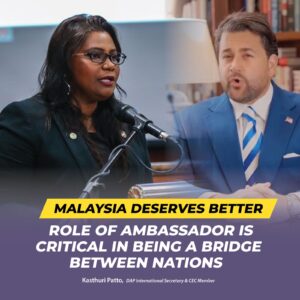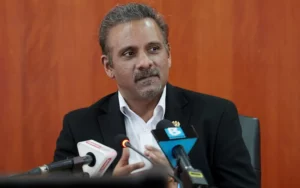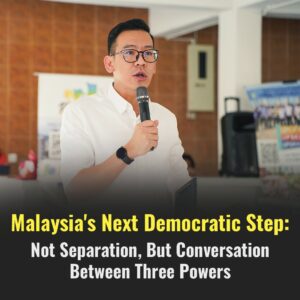
The original articulation of the Look East Policy was heavily weighted towards learning from Korea and Japan to industrialise rapidly and to acquire technologies.
The notion that Asian economies can be great manufacturing houses with sophisticated technologies was a novelty and an ambitious one in the 1980s. At that time, only Korea, Japan, and, to a lesser extent, Taiwan, were leaders in manufacturing in Asia. But the rise of China during the intervening years has upended the idea altogether. Northeast Asia, China included, became the factory of the world and leading at least in consumer technologies.
Malaysia has never reached the level of manufacturing excellence that Korea continues to possess over the decades. In fact, Malaysia experienced premature deindustrialisation after the Asia Financial Crisis in 1997 and after China joined the World Trade Organisation in 2001.
But we are back. With the ambitious New Industrial Master Plan 2030 launched by Prime Minister Datuk Seri Anwar Ibrahim, Malaysia wants to re-industrialise and it is in this context that Korea remains the best role model.
At 51 million people, South Korea’s population is a bit more than Malaysia’s 33 million people. The quest to keep moving up the technological ladder, massive R&D, investing in innovation, and raising productivity, coupled with a very strong education system, continues to inspire.
This year, in my capacity as Deputy Minister of Investment, Trade and Industry, I met Dr. Wang Yunjong, Economic Security Advisor to the President. I learnt quite a lot from Dr. Wang on how Korea sees the need to secure its supply chain and to ensure the economic security of Korea. I am told that Korea maps the supply chains of almost 200 items in the most meticulous manner.
This is something that we in Malaysia need to take note of. First, supply chain resilience is the most important factor for industries and nations; Second, Malaysia should find ways to collaborate with Korea and to develop vertical integration with Korea’s supply chain as much as possible.
I also met H.E. Ahn Dukgeun, Minister of Trade of Korea, in Detroit, and I can sense that he and the Korean Government are keen to foster a much deeper economic relationship with Malaysia in this changing global economic landscape. Tengku Zafrul Aziz, Minister of MITI, and the Government of Malaysia, are keen to strengthen the bilateral trade relationship, too. As Tengku Zafrul pointed out just a few days earlier, “Malaysia also remains open to an FTA with the Republic of Korea and is studying the direction of negotiations based on the benefits to be gained by the country.”



